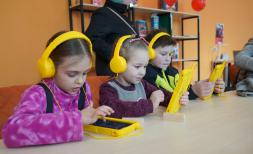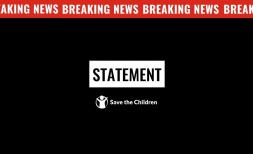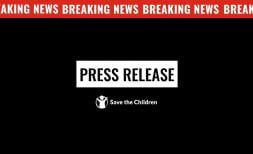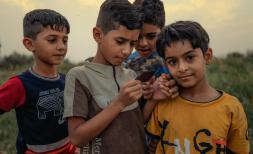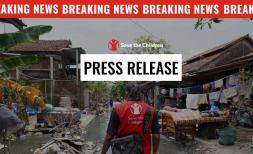At least 24 children killed in most recent boat tragedy as families in Lebanon lose hope
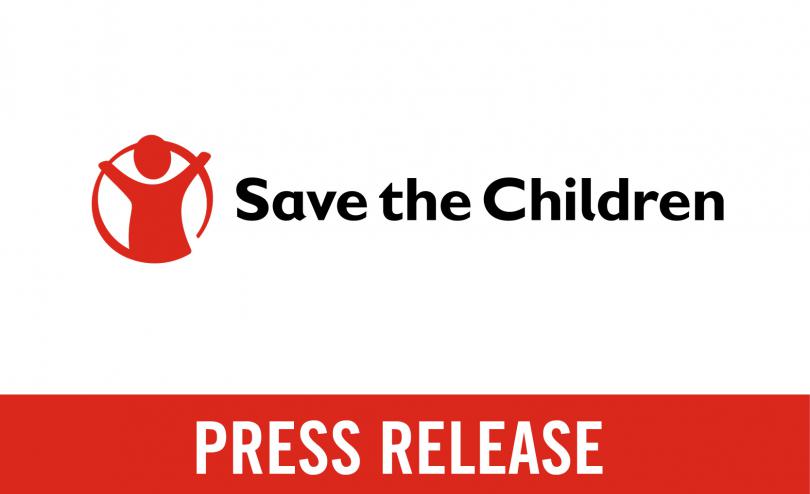
- The number of asylum seekers from Lebanon attempting the perilous journey across the Mediterranean has more than doubled in 2022 for the second year in a row.
- New briefing from Save the Children highlights diminishing hope among Syrian refugees in Lebanon as poverty, discrimination persist.
- Refugees in Lebanon, Iraq and Jordan highlighted their desires to a relocate to a third country, yet places for refugees remain critically low.
AMMAN, 27 September 2022 – At least 24 children have been killed and others remain missing following the deadliest boat capsize in the Mediterranean in recent years, says Save the Children. The children form part of at least 94 people confirmed dead and likely more after a boat with more than 150 asylum seekers left Lebanon last Wednesday before capsizing in the sea.
The tragedy is the latest in a string of incidents which have killed desperate children and adults in the Mediterranean this month. On 13 September, 4 children were amongst 6 people found dead after a boat capsized after setting out from Lebanon. On 12 September, 6 Syrians including 3 children died off the coast of Italy. At least 3,500 people have attempted to cross the Mediterranean from Lebanon this year alone.
According to UNHCR, the number of asylum seekers from Lebanon attempting the perilous journey has more than doubled in 2022 for the second year in a row, but Syrians still comprise the vast majority of people undertaking irregular boat journeys.
Save the Children today released a new briefing detailing the profound loss of hope experienced by Syrian refugee children in Lebanon who have languished in the country for years without any prospects.
The briefing reveals that the crisis is driving Syrian refugees in Lebanon to lose hope, and that for this reason their biggest wish now is to move to a third country, suggesting desperation is driving them to take riskier routes to secure their survival. Women in particular mentioned their hope to secure access to quality education for their children, and ensure they learn to read and write. However, the number of places made available by other countries outside the region remains far below actual need. For example, despite almost 600,000 people assessed to be in need, the actual number of places is no more than 20,000 per year[i].
Lebanon has been battling one of its worst economic crises in recent memory. Data from last month showed the price of bread has increased fourfold since last year. Earlier this year, Save the Children said that half of Lebanese children in the country – aside from the refugee and immigrant population – are reliant on humanitarian assistance to survive.
Numerous people interviewed for the study by Save the Children, especially in Lebanon, felt hopeless or unable to think about the future, as they were preoccupied by day-to-day survival and saw their future prospects as limited.
One boy told the child right’s organisation: “I was asked [how would I like to see my life change] five years ago, and since then, nothing has changed. I don’t expect my life to change for the better in the coming years because I lost hope.”
Save the Children staff in Lebanon are concerned that this loss of hope will drive more families to take deadly sea journeys like those that have killed dozens of children this month.
Jennifer Moorehead, Save the Children’s Country Director in Lebanon said:
“Lebanon is deep into its fourth year of crisis, triggered by an economic collapse, government paralysis, and ongoing impacts of the port explosion. These layered crises have created a deeply complex humanitarian emergency, exacerbated by a collapse in public services and a lack of social safety nets. The situation is affecting everyone: Lebanese, refugee and migrant communities alike. An increasing number of Lebanese citizens have tried to cross the Mediterranean Sea, attempting to escape the economic collapse currently gripping the country."
“The death of one child by sea is already too many – no child should die in search of their most basic needs.”
Save the Children is calling on the international community to increase access to quality resettlement opportunities and other safe and regular routes for Syrian refugees and refugees from other contexts in line with the commitments in the Global Compact on Refugees, as this remains the only safe and dignified option for some refugees and the preferred solution for many. This means countries, particularly in Europe, protecting Syrians’ right to seek asylum and improving safe access to third countries, including through educational programmes and labour migration opportunities. It is also vital that all countries respect and uphold the principle of non-refoulement and work to address conditions which may push refugees to return against their will.
Donors must also ensure adequate long-term and multi-sectoral development funding to support refugee programming that reflects the protracted nature of the crisis.
Editor notes:
- This report provides a qualitative update on how Syrian refugees in Lebanon, Jordan, and Iraq think about their future, what influences their decision-making processes, and how they view durable solutions in a region hard-hit by COVID-19 and an economic crisis. It is based on 72 focus group discussions with refugees across these countries. Participants were selected among refugees participating in Save the Children’s programs in each country. The study is based on qualitative data from the focus group discussions, and the findings cannot be generalised to the total refugee population in Iraq, Lebanon, and Jordan.
- Save the Children has been working in Lebanon since 1953. For over six decades, we have used rights-based approaches to increase access by children, adolescents, and youth to quality education; to strengthen child participation and protection at the family, school and community levels; and to increase food security and access to livelihood opportunities, clean water and proper shelter.
[i] UNHCR Data Portal: Syrian Regional Refugee Response: Durable Solutions. Online: https://data.unhcr.org/en/situations/syria_
durable_solutions
